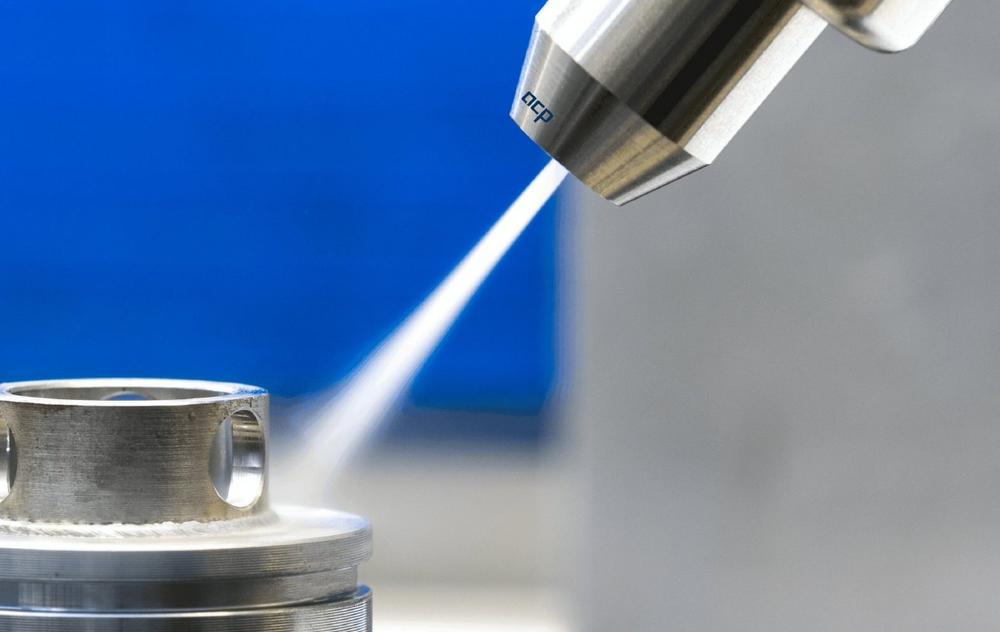Whether it is the automotive or supplier industry, precision or micro engineering, medical technology, mechatronics, electronics or other industrial sector, current trends are changing requirements concerning parts cleaning. This also includes an increasing number of smaller and more complex parts and components. Shorter product life cycles, lower product volumes right down to the manufacture of single parts, the use of new materials and material combinations, for example for lightweight engineering applications, and new or modified production processes. Electromobility, autonomous driving and manufacturing environments designed for Industrie 4.0 are further developments which are influencing parts cleaning. There are cases where material combinations or surface structures are unsuitable for wet-chemical cleaning, or only certain areas of components need a specific degree of cleanliness, such as bonding, welding or sealing surfaces, or cleaning steps are performed on assembled components.
Scalable cleaning solution with CO2 snow
This is where the reliable and cost-effective snow jet technology from acp – advanced clean production GmbH comes into its own. The scalable cleaning system can be easily adapted to diverse component geometries to clean selective areas or whole components.
This environmentally-neutral technology uses liquid carbon dioxide as a cleaning medium which, as opposed to dry ice, is gained as a by-product from chemical processes and the generation of energy from biomass. It has an almost indefinite shelf-life and is supplied in cylinders or tanks.
Dry, residue-free and selective cleaning process
Liquid CO2 is guided through the non-wearing two-component ring nozzle of the acp system and expands on exiting to form fine CO2 crystals. These are then bundled by a circular jacketed jet of compressed air and accelerated to supersonic speed. The patented technology ensures uniform cleaning results – even on large surfaces where several nozzles are used.
The jet of snow and compressed air has a temperature of minus 78.5°C and can be focused exactly where it is needed. When it impacts on the surface to be cleaned, a combination of thermal, mechanical, sublimation and solvent effects take place. These four cleaning mechanisms enable the quattroClean system to remove filmic contamination, such as residues of cooling lubricants, process oils, polishing pastes, separating agents and silicons, as well as particulate contamination, for example chips, dust and abrasion. Since the cleaning step with the non-combustible, non-corrosive and non-toxic CO2 snow is also gentle on materials, even delicate and finely-structured surfaces can be treated.
The aerodynamic force of the jet transports the detached dirt away. This is then extracted from the cleaning cell together with the sublimated CO2 in a gaseous state. The workpieces are dry on completion of the cleaning process, enabling them to be further processed or packaged straightaway.
Cleaning solution suitable for a wide range of products
The quattroClean snow jet technology has proved to be effective in numerous applications in various branches of industry. For example, the cleaning system has been in use for several years now to remove ablation residues from injection-molded interconnect devices (MID) produced by means of laser direct structuring. Compared with common cleaning methods, such as ultrasonic or high-pressure washing processes, the quattroClean system has the advantage that the rough laser structures are smoothed at the same time, thus simplifying joining and assembly tasks. Laser residues also need to be removed when manufacturing batteries. Residues from laser processing cells, which could cause shorting, are removed selectively and reliably. A manufacturer of sensor systems uses the snow jet technology from acp to clean off particles before sensors liable to damage are packaged. For this application, a hermetically-sealed cleaning cell was developed, which is integrated into a clean zone and fitted with a filter fan unit to supply clean air. The quattroClean system is also used in an inline application to clean engine pistons before their surfaces are optically measured. The parts are cleaned by a robot. The system works in the production system’s one-piece flow and is capable of cleaning 11 cm2/sec. When it comes to die-cutting, an almost manual system removes production residues from strips immediately after cutting. This single-part cleaning step replaces the commonly-used wet-chemical cleaning process.
Compact, easy to automate and targeted control
Thanks to its modular design, the compact quattroClean system from acp is easy to adapt to specific customer requirements. This allows manual, partially-automated and even fully-automated cleaning systems to be developed and integrated into existing production, assembly and packaging lines. Cleaning tests are conducted at the acp technical center to accurately determine all the process parameters for the application concerned, such as volume flows for compressed air and carbon dioxide, as well as the duration of the jet. Material properties and the type of contamination requiring removal are also accounted for. These parameters can be filed as cleaning programs in the system control. Depending on the task at hand, systems for cleanroom use can be realized with their own local cleanroom system, including a specially-adapted extraction system.
acp – advanced clean production GmbH, www.acp-micron.com
acp – advanced clean production GmbH
Die acp – advanced clean production GmbH wurde 1997 in Stuttgart gegründet. Hervorgegangen ist das Unternehmen aus dem Fraunhofer Institut für Produktionstechnik und Automatisierung IPA. Heute ist acp Anbieter von neuesten Verfahrenstechnologien und Produkten für die mobile und stationäre Inspektion und Reinigung von technischen Oberflächen sowie von Lösungen zum Dosieren viskoser Medien.
Im Produktbereich Inspection Technologies bietet das inzwischen in Esslingen ansässige Unternehmen Systeme zur direkten Partikel- und Strukturerkennung sowie zur Erkennung von filmischen und partikulären Verschmutzungen auf technischen Oberflächen. Der Produktbereich Cleaning Technologies realisiert vor allem CO2-basierte Reinigungssysteme.
acp systems AG
Berblingerstr. 8
71254 Ditzingen
Telefon: +49 (7156) 48014-0
Telefax: +49 (7156) 48014-10
http://www.acp-systems.com
Journalistin (DJV) und Texterin
Telefon: +49 (711) 854085
Fax: +49 (711) 815895
E-Mail: doris.schulz@pressetextschulz.de
